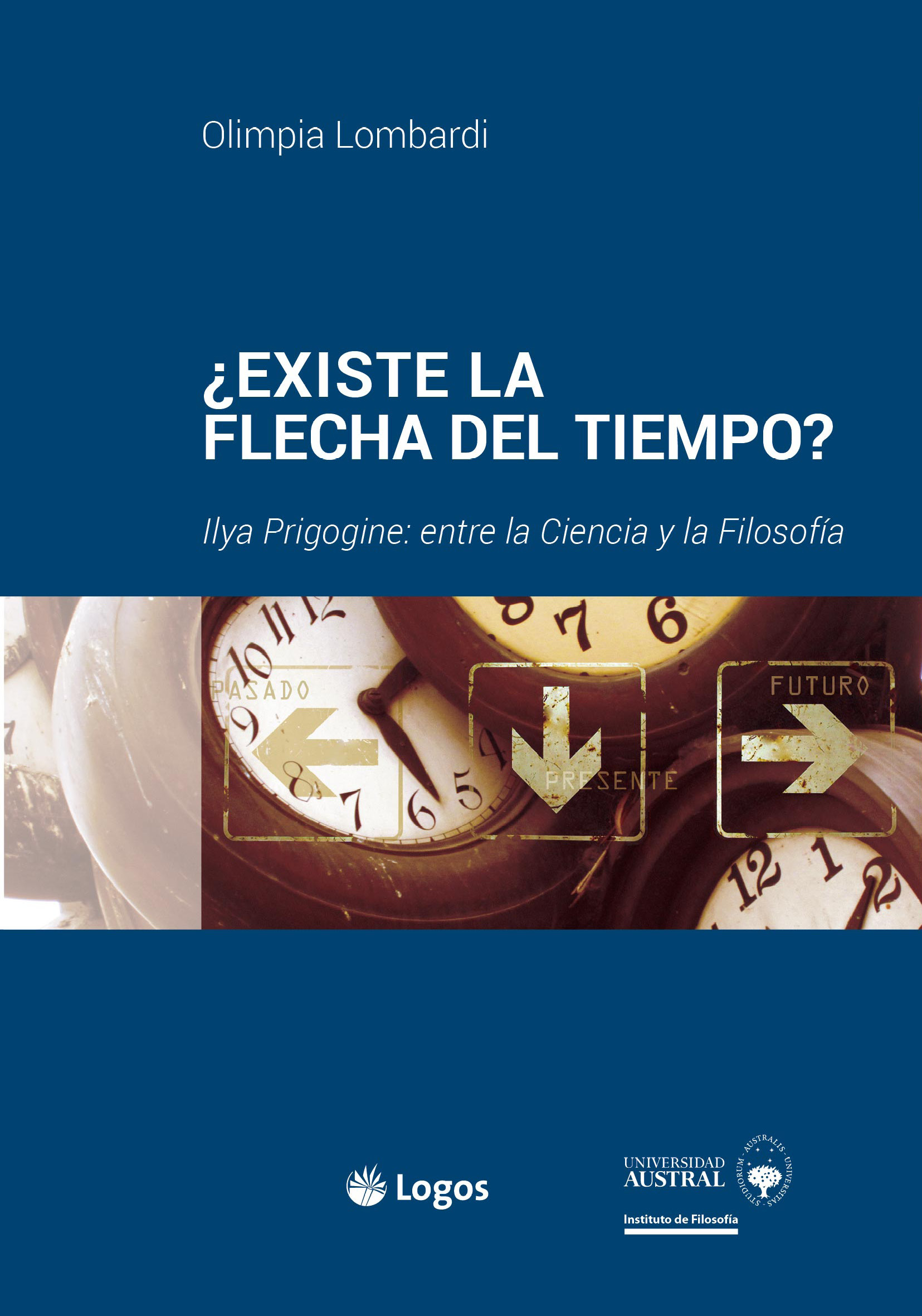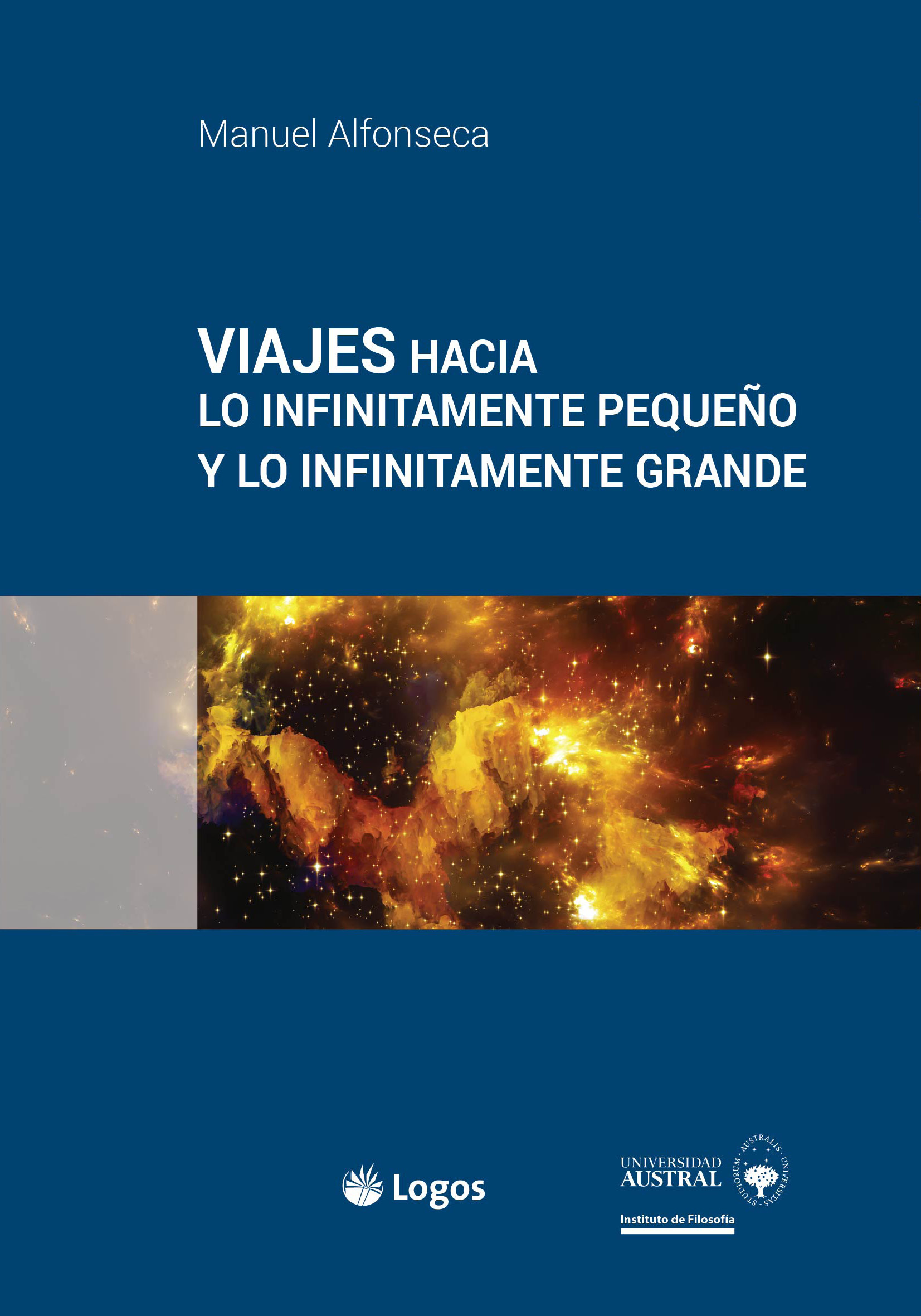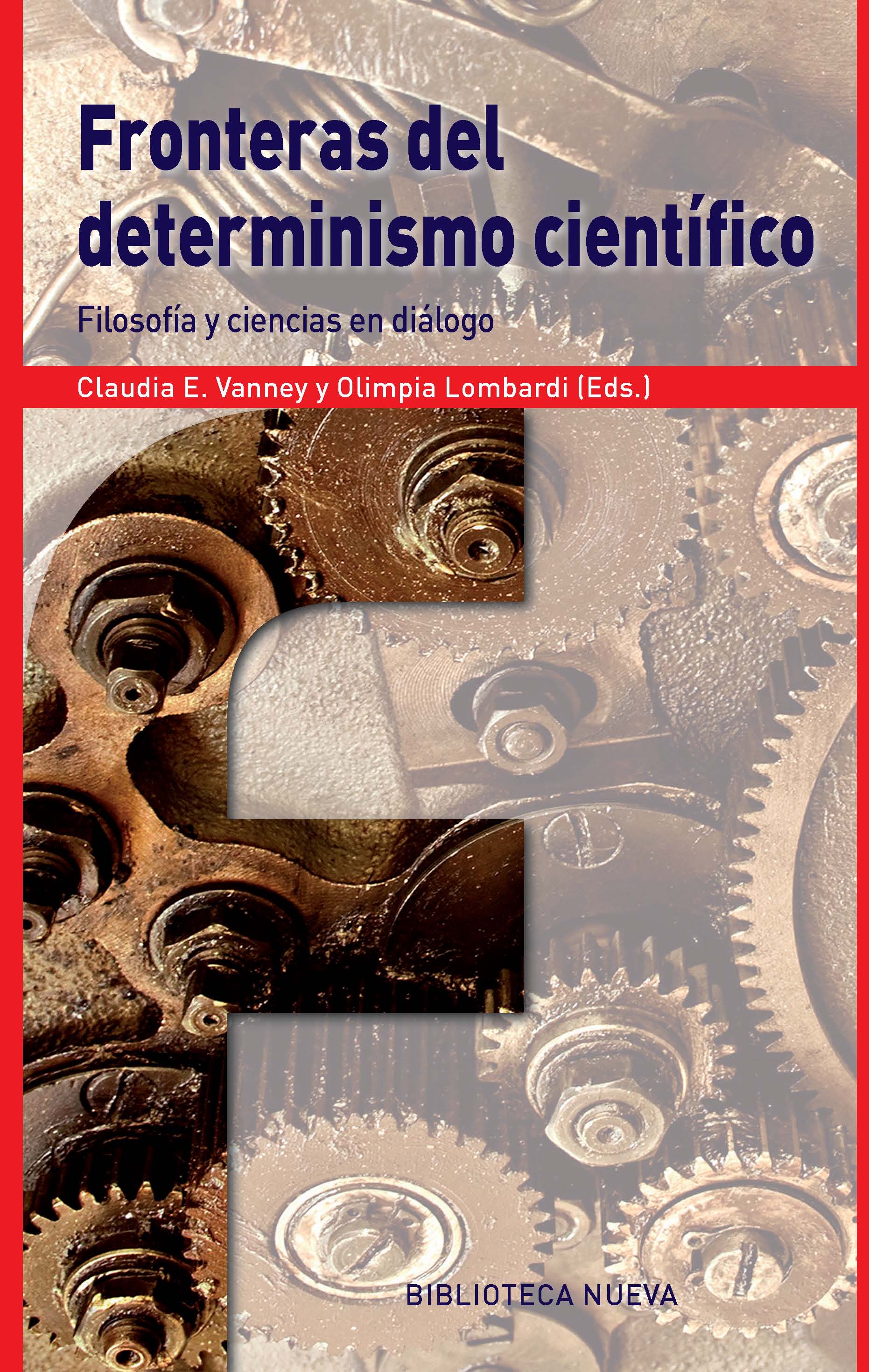Publications
¿Existe la flecha del tiempo? – Ilya Prigogine, entre la Ciencia y la Filosofía
[Does the arrow of time exist? – Ilya Prigogine, between Science and Philosophy]
 While we move through space in any direction, in time we can only move from the past into the future: we hopelessly age; we can not change what happened; we remember the past, but we project the future. Why does time manifest a unidirectionality that none of the three dimensions of space have? Can the physical and chemical sciences account for this “arrow of time”? This is the problem Ilya Prigogine, Nobel Prize in Chemistry, revealed throughout his scientific life.
While we move through space in any direction, in time we can only move from the past into the future: we hopelessly age; we can not change what happened; we remember the past, but we project the future. Why does time manifest a unidirectionality that none of the three dimensions of space have? Can the physical and chemical sciences account for this “arrow of time”? This is the problem Ilya Prigogine, Nobel Prize in Chemistry, revealed throughout his scientific life.
This book deals with the search for the arrow of time through the works of Prigogine, an author who developed his thinking between science and philosophy.
Olimpia Lombardi Olimpia Lombardi is an Electrical Engineer and has a PhD in Philosophy (Universidad de Buenos Aires). She is a Senior Researcher at the National Council of Scientific and Technological Research (CONICET) and she is Professor of Philosophy of Science at the School of Exact and Natural Sciences at Universidad de Buenos Aires. She specializes in Philosophy of Physics, specifically in quantum mechanics. She has also carried out several analyses of determinism and indeterminism in highly unstable systems studied in ergodic theory and chaos theory. At present, she is working on the development of a new interpretation of quantum mechanics, the modal-Hamiltonian one. She has written numerous articles and several books.
Viajes hacia lo infinitamente pequeño y lo infinitamente grande
[Travel to the infinitely small and the infinitely large]
 The worlds of the infinitely small and the infinitely large, as far apart as they are from each other, they are in very close contact. Modern Cosmology, which deals with the origin and end of the universe can not be explained without taking into account the physics of particles. This book describes a double journey that starts from the human scale, goes to the smallest, crossing the boundaries of life, to finish in the building blocks of matter. The second part of the trip goes to the planets, stars and galaxies, to finish in the universe, its origin and its possible end, as well as the hottest and most unresponsive question to modern physics: did anything happen before the Big Bang?
The worlds of the infinitely small and the infinitely large, as far apart as they are from each other, they are in very close contact. Modern Cosmology, which deals with the origin and end of the universe can not be explained without taking into account the physics of particles. This book describes a double journey that starts from the human scale, goes to the smallest, crossing the boundaries of life, to finish in the building blocks of matter. The second part of the trip goes to the planets, stars and galaxies, to finish in the universe, its origin and its possible end, as well as the hottest and most unresponsive question to modern physics: did anything happen before the Big Bang?
Manuel Alfonseca has a PhD in Electronics Engineering and a master in Computer Science. He worked for twenty-two years at the U.A.M.-I.B.M. Scientific Center, where he reached the I.B.M. professional category of Senior Technical Staff Member. He has been a faculty member at the Universidad Politécnica, Complutense and Autónoma of Madrid, where he was a member of the Department of Computer Engineering and was director of the Escuela Politécnica Superior. He has published around two hundred technical and popular science articles in the newspaper La Vanguardia, from Barcelona, and in several blogs, such as Divulgación de la Ciencia. He has published over forty books on popular science, computing, history novel, science fiction and books for children and juveniles. In this genre, he obtained in 1988 the Lazarillo Award, and in 2012 the IV La Brújula Award.
La evolución de la vida en la Tierra – Ciencia, filosofía y religión
[The evolution of life on Earth – Science, philosophy and religion]

La evolución de la vida en la Tierra has an updated overview of the controversy over evolution in the three major areas of Science, Philosophy and Theology. The analysis, presented in a rigorous way but friendly to the general public, leads the reader through the maze of contemporary evolutionary controversy in what it concerns to Christian thought.
In the eyes of the author, Darwin’s theory is a rich stimulus to Christian theology and a test case that, from a philosophical perspective, the thesis of the conflict between science and religion is a false dilemma.
Miguel de Asúa has a PhD in Medicine (Universidad de Buenos Aires), a Master degree in Theology (Universidad Católica Argentina), a Master degree in History and Philosophy of Science and a PhD in History (University of Notre Dame). He is a Principal Investigator of CONICET and a full member of the National Academy of Sciences of Buenos Aires and the National Academy of History. He teaches at UNSAM (Universidad Nacional de San Martín), UCA and is also a professor of Science and Religion in the Colegio Máximo of San Miguel. Among his numerous publications it stands out “De cara a Darwin. La teoría de la evolución y el cristianismo“. [Looking at Darwin. The theory of evolution and Christianity] (2009).
Frontiers of Scientific Determinism
 Is our reality determined or, on the contrary, is it left to chance and surprise? The tension between determinism and indeterminism has been a constant concern of human beings in different times and cultures, finding multiple responses in the history of philosophy from the Greek ‘Ananke’ or the Latin ‘fatum’, which embodied the idea of a destination that marks life, both human and divine, to the idea of a world that has lost all certainty and security.
Is our reality determined or, on the contrary, is it left to chance and surprise? The tension between determinism and indeterminism has been a constant concern of human beings in different times and cultures, finding multiple responses in the history of philosophy from the Greek ‘Ananke’ or the Latin ‘fatum’, which embodied the idea of a destination that marks life, both human and divine, to the idea of a world that has lost all certainty and security.
The book Fronteras del determinismo científico – Filosofía y ciencias en diálogo (Frontiers of scientific determinism – Philosophy and Science in Dialogue), edited by Claudia Vanney, director of the Institute of Philosophy and Olimpia Lombardi, director of the group Philosophy of Science based at the Faculty of Natural Sciences, UBA has just been published. In this book the question of determinism is approached from many different fields, from quantum mechanics, chaos theory and the microscopic chemistry in the area of physico-chemical sciences, to genetics, evolutionary developmental biology and conservation biology in the domain of life sciences, also including some specifically philosophical domains such as those related to the problem of freedom and free will.
The Fronteras (Borders or Frontiers) collection wants to meet the challenge of interdisciplinary dialogue, undoubtedly one of the most pressing tasks in the current intellectual scene. The split between scientific and humanistic culture has become so deep that looking for instruments to overcome it should not be postponed any longer. The meeting point must suppose an integration effort, since it is so impoverishing an approach that puts aside the latest developments of science as one which disregards the contributions from art, literature or philosophical reflection.
The collection has the support of the Asociación de Filosofía y Ciencia Contemporánea (AFyC), an institution that works independently from any institutional framework or doctrinal conditioning.
Debate on Determinism: New Perspectives from the Contemporary Science (translation incomplete)
 The Spanish journal Anuario Filosófico (Philosophy Department, University of Navarre, Spain) has published its second issue of 2013. It is a monographic issue bearing the title El debate sobre el determinismo: nuevas perspectivas desde la ciencia contemporánea [The debate on determinism: new perspectives from contemporary science] and it examines the fascinating contemporary discussion between determinism and indeterminism in several fields. The associate editor of the volume is Prof. Claudia Vanney, who has a Ph. D. in Physics (University of Buenos Aires, Argentina) and a Ph. D. in Philosophy (University of Navarre, Spain), and therefore gathers in her education the key elements for the dialogue between philosophy and science
The Spanish journal Anuario Filosófico (Philosophy Department, University of Navarre, Spain) has published its second issue of 2013. It is a monographic issue bearing the title El debate sobre el determinismo: nuevas perspectivas desde la ciencia contemporánea [The debate on determinism: new perspectives from contemporary science] and it examines the fascinating contemporary discussion between determinism and indeterminism in several fields. The associate editor of the volume is Prof. Claudia Vanney, who has a Ph. D. in Physics (University of Buenos Aires, Argentina) and a Ph. D. in Philosophy (University of Navarre, Spain), and therefore gathers in her education the key elements for the dialogue between philosophy and science
The problem of determinism is of great import nowadays, after a century when some scientific discoveries have challenged basic as well as fundamental notions, such as human free will, the proper inner structure of nature or the origin of living beings, among others. For this reason a rigorous and deep reflection becomes unavoidable. We read in the Introduction: “it is necessary to make a right differentiation of the epistemological, ontological and methodological levels (…) in order to face the recurrent problem of reductionism adequately”.
The publication includes six articles (five in Spanish and one in English), which discuss the topic from quantum decoherence (Sebastián Fortín, Buenos Aires), the concept of possibility in contemporary physics (Olimpia Lombardi and Mariana Córdoba, Buenos Aires), neo-Aristotelian teleology (Andrew Pinsent, Oxford), systemic perspectives in biology (Marta Bertolaso, Rome), free will (Juan José Sanguineti, Roma), and divine providence (Ignacio Silva, Oxford).
It also includes the In memoriam for profesor Leonardo Polo, by his disciple Fernando Mugica, portraying him as a true master, both as a philosopher for his thinking but also as a person, for his care and attention to students and colleagues from the Department of Philosophy. Finally, the issue closes with fourteen reviews of recently published literature .


 English
English Español
Español